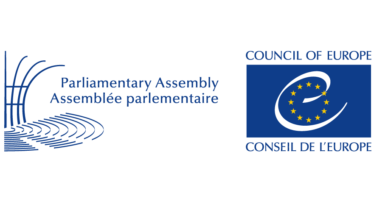Kürecik to protest deployment of NATO early warning radar system in Turkey
![]()
TODAY’S ZAMAN
?STANBUL

The deployment of a NATO warning system in Malatya’s Kürecik district has come under harsh criticism by opposition parties and the residents of the region.
Residents of Malatya’s Kürecik district met on Sunday to announce that on Oct. 2 they will hold a protest against the NATO radar system that is to be deployed within the boundaries of their town.
Residents of Malatya’s Kürecik district staged a protest on Sunday against the deployment of a NATO early warning radar system in the region that will protect NATO countries against potential missile threats from Russia and Iran. The Kürecik Mutual Benefit and Relief Association held a meeting in which the decision to organize a protest was accepted by residents and is expected to be widely attended.
Association President ?brahim Duman declared, “We, the residents of Kürecik, announce that we are against all variety of things that can harm humanity.” He added, “We are against war and any type of mechanism that serves war.”
It was agreed last week that Turkey will station an early warning radar system as part of NATO’s missile defense system in Kürecik, which is widely opposed not just by residents but by many others in the region. The US-operated early warning radar system, to be implemented under NATO’s umbrella, will be protected by 50 US soldiers who will be responsible for internal security at the Kürecik radar base.
Turkey has not approved the participation of Raytheon engineers in the operation due to concern there could be embedded intelligence agents. Turkey included a condition in the agreement that NATO not allow access of non-member countries, namely Israel, to the information obtained by the system for use in their own interests.
Turkish and American officials engaged in feasibility studies for the deployment of the radar system in the eastern region of the country and agreed on Wednesday that Kürecik in Malatya would be the ideal location. US officials were concerned that it was too isolated a location for security personnel to provide adequate protection for the radar system from attacks to sabotage the base, particularly from the Kurdistan Workers’ Party (PKK), Hezbollah and even Iran. However, Ankara responded to their concerns with the promise to implement extensive security measures in the zone surrounding the base.
Turkey forced the removal of a statement in last year’s NATO summit in Lisbon that labeled Iran as one of the potential threats against which the radar could be used to block a possible nuclear assault. Turkey objected to wording that labeled its neighbor as a threat.
According to the NATO plan, missile interceptors in Romania and Poland combined with the radar in Turkey will create a broad system of protection for every NATO country against mid-range missile attacks. Speaking to reporters ahead of his visit to New York to attend UN meetings, Erdo?an said there is much misinformation regarding the NATO’s early warning radar system that is set to be deployed in Kürecik.
He said Turkey is a NATO member country and that previously there was a base in Kürecik. Erdo?an dismissed claims that the radar system is being deployed to protect Israel, reminding the public that the Jewish state is not a NATO member country. He harshly criticized what he called an “old mentality,” and said those who exhibited this way of thinking would say the radar system is against Russia but now “say it is against Iran.”
Erdo?an said it is possible to consider the radar system an effective defense measure for Turkey itself and stressed that it is not the missile shield that is expected to be deployed in Malatya. Noting that deploying the radar system in Kürecik is not based on bilateral agreement, Erdo?an said it is a part of the NATO program and that cities such as Adana, Diyarbak?r and Erzurum were examined as well. He added that as there was a NATO base before in Kürecik, the site was decided on as the best place to host the radar system.
Related Articles
Egypt’s 12,001 missing votes
![]()
How can Egypt’s elections be described as free and non-violent when the country has so many political prisoners? Mark LeVine
El Consejo de Europa levanta sus sanciones a Rusia
![]()
la Asamblea parlamentaria del Consejo de Europa, decidió por mayoría levantar las sanciones impuestas por esta institución a Rusia, en el 2014 a raíz del conflicto en el este de Ucrania
Kosovo: Where NATO Bombing Only Made the Killing Worse
![]()
The Big Lie: From Serbia to Syria So, was there serious evidence of a Serbian campaign of Genocide in Kosovo?



